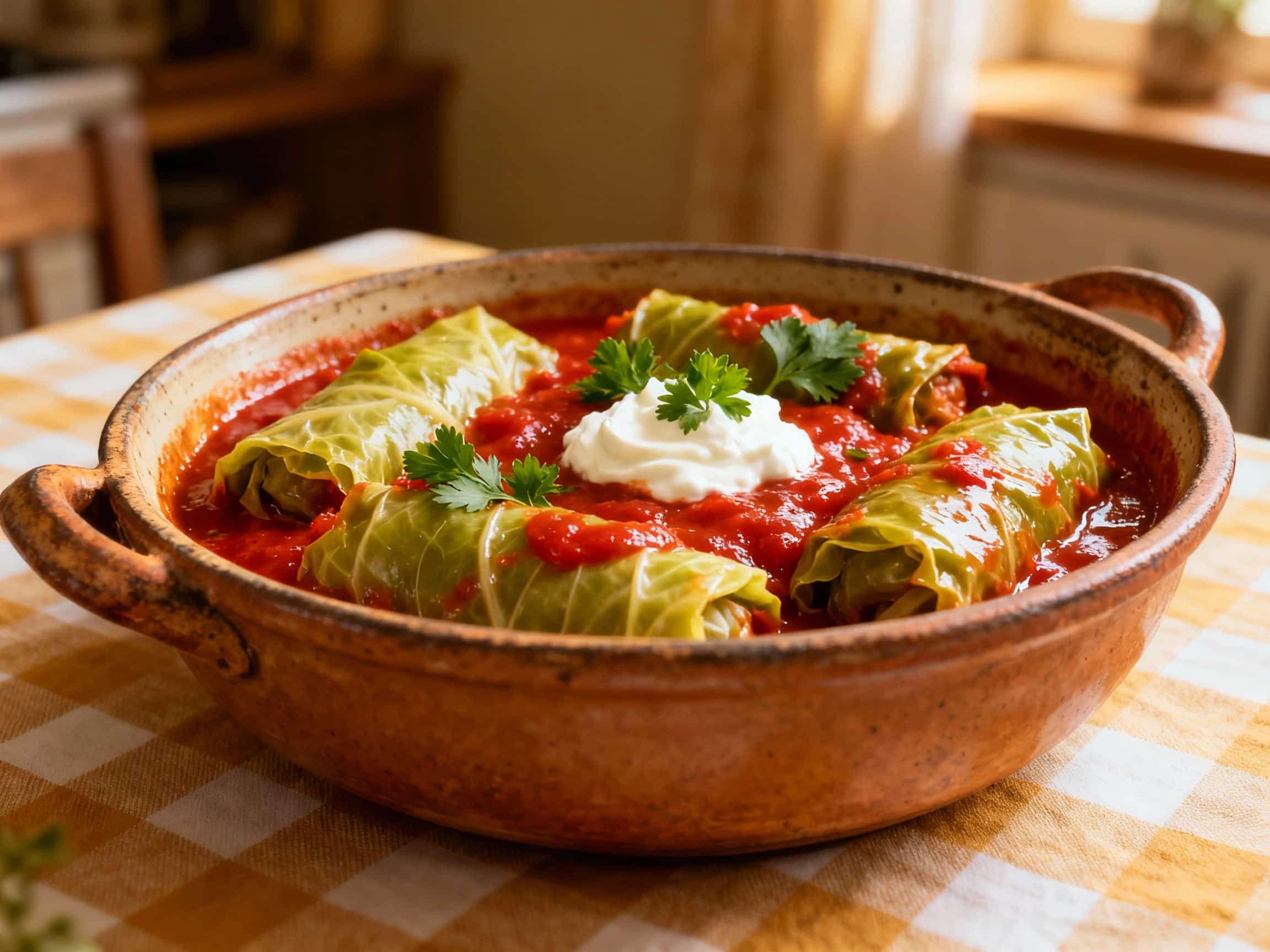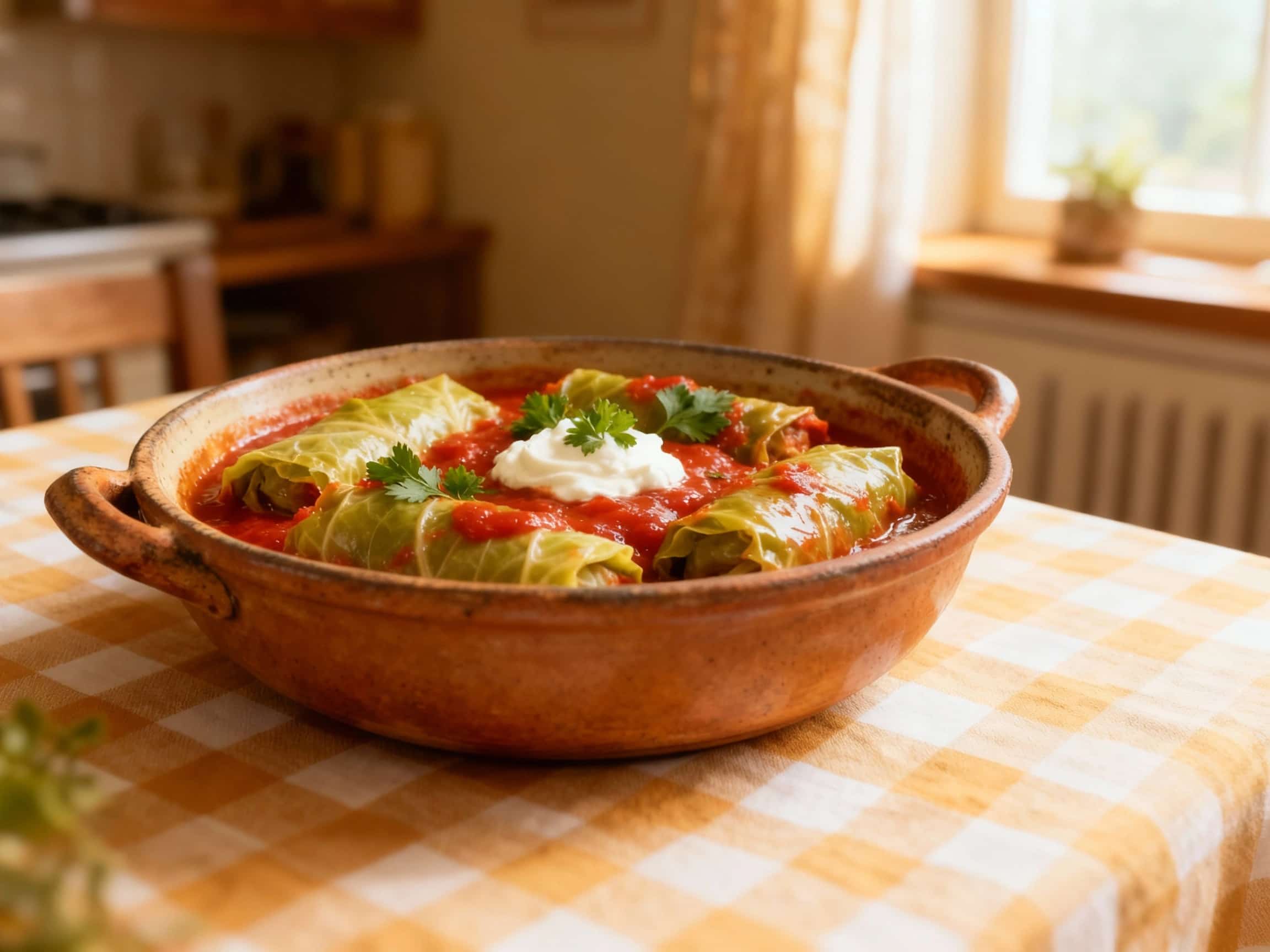
Holubtsi
Голубці
- Country
- Ukraine
- Region
- Not specified
- Recipes
- 0 Recipes
Origins & Characteristics of Holubtsi
Holubtsi, or Ukrainian cabbage rolls, are a cherished comfort food deeply embedded in Ukrainian culinary tradition. The name 'holubtsi' translates to 'little doves,' a poetic moniker possibly referring to their neat, compact shape resembling a resting bird. While similar dishes exist across Central and Eastern Europe, Ukrainian holubtsi have a distinct character, typically featuring blanched cabbage leaves wrapped around a savory filling of rice and ground meat (pork, beef, or a mix), simmered in a rich tomato-based sauce, often with a touch of sour cream. The dish's origins can be traced back through various migrations and cultural exchanges. Cabbage, a staple crop in the region for centuries, naturally became a key ingredient in many dishes designed for sustenance. The concept of wrapping fillings in leaves has ancient roots, with grape leaves or other greens used in varying cultures. However, the cabbage roll became particularly prominent in Ukraine as a hearty, economical, and delicious way to use readily available ingredients. Holubtsi are more than just a meal; they are a symbol of family gatherings, holiday feasts, and a connection to ancestral traditions. Grandmothers often pass down their unique recipes, with variations based on regional preferences – some use fresh cabbage, others fermented, some with more rice, others with less meat, and even vegetarian versions. They are a staple during Christmas Eve supper (Sviata Vecheria) in many Ukrainian families, representing unity and abundance. The slow cooking process allows the flavors to meld beautifully, creating a dish that evokes warmth, home, and a sense of belonging.
History of Holubtsi
Early forms of cored and filled cabbage appear in Eastern European cooking.
The specific form of 'holubtsi' with rice and meat filling wrapped in cabbage leaves becomes widely recognized.
Ukrainian cookbooks begin to feature detailed recipes for holubtsi.
Holubtsi gain popularity among Ukrainian diaspora communities, becoming a culinary emblem.
Classic Holubtsi recipes and variations
0 recipes foundWe'll add related recipes for this dish soon.
